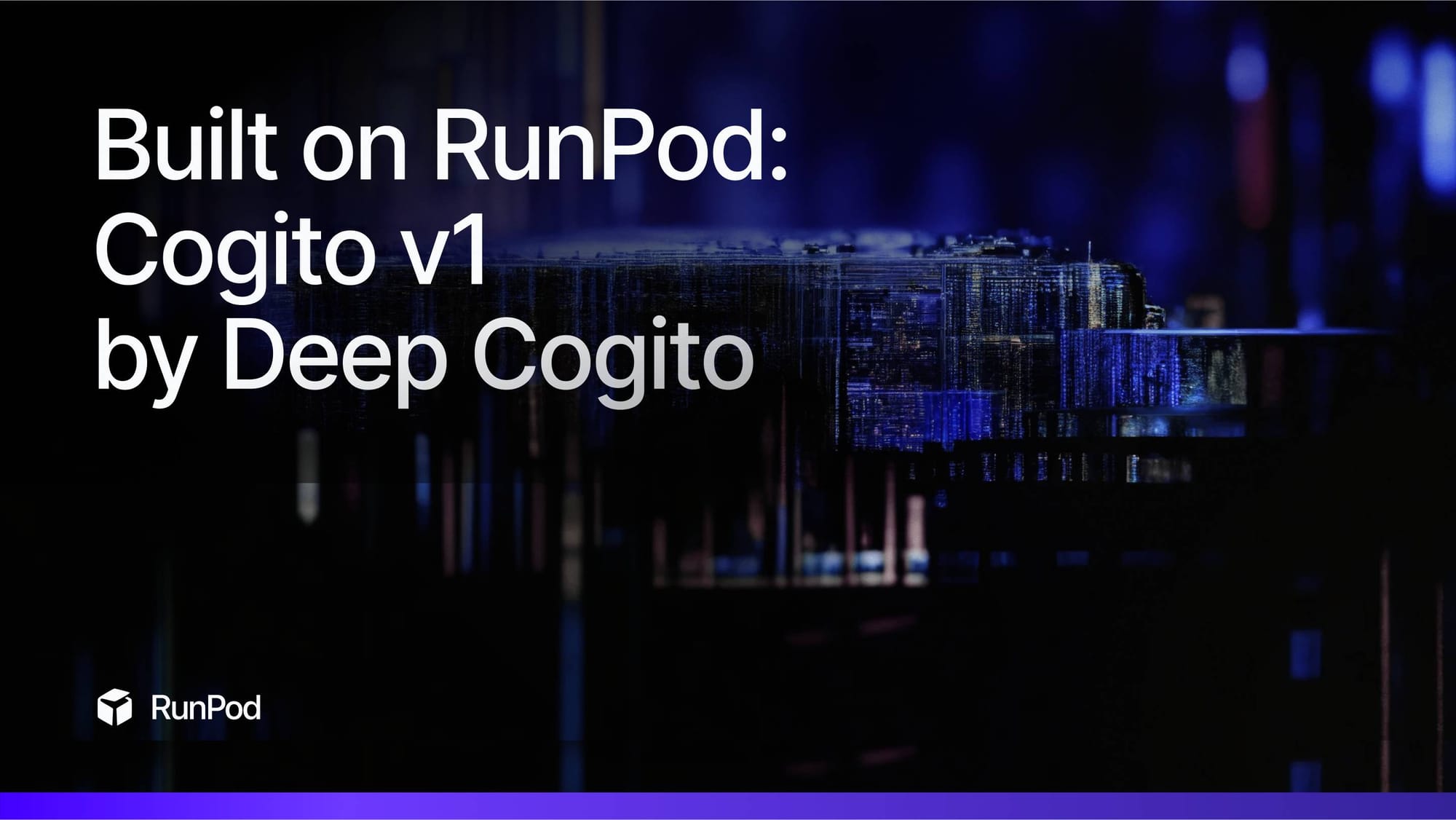Built on RunPod: How Cogito Trained High-Performance Open Models on the Path to ASI

At RunPod, we're proud to power the next generation of AI breakthroughs—and this one is big.
San Francisco-based Deep Cogito has just released Cogito v1, a family of open-source models ranging from 3B to 70B parameters. Each model outperforms leading alternatives from LLaMA, DeepSeek, and Qwen in its class across most standard benchmarks. Even more impressive? They were trained in just 75 days by a small team using RunPod infrastructure.
But Cogito isn't just about raw performance. It's about a fundamentally different approach to training AI—one rooted in iterative self-improvement, not imitation.
A Smarter Strategy: Iterated Distillation and Amplification (IDA)
Cogito v1 models are trained using Iterated Distillation and Amplification (IDA), an alignment strategy originally conceptualized during the AlphaGo era—but now applied to transformers in a novel way.
Instead of distilling from a larger teacher model (which caps performance at the teacher’s level), IDA uses compute-intensive subroutines to arrive at better answers, and then distills that improved reasoning back into the model’s parameters. Over time, this process helps the model learn how to think better, not just mimic better.
As founder Drishan Arora puts it: “Currently, models are either trained using human supervision or a larger model supervision. Both these methods have a ceiling.”
With IDA, we use reasoning to improve the model’s own intuition, and this improved intuition helps choose the right trajectory of tokens while solving harder problems.
Cogito uses techniques like reasoning, sampling, verification, and even debate to amplify intelligence—without human bottlenecks.
Dual-Mode Intelligence: Direct and Reasoning
Cogito v1 models support two distinct modes:
- Direct Mode – Fast, high-quality completions for common tasks
- Reasoning Mode – Slower but more thoughtful responses using added compute
This dual-mode system gives developers the flexibility to choose between speed and depth depending on the task at hand. It's part of what makes Cogito especially promising for agentic use cases, tool use, and coding applications.
From 3B to 70B—and Beyond
Cogito models span from 3B to 70B parameters, each fine-tuned for coding, tool calling and agentic use cases. The 70B model, trained on RunPod using H200 GPUs, outperforms LLaMA 3.3 70B and even the 109B LLaMA 4 Scout model across major benchmarks.
Future checkpoints and larger MoE (Mixture of Experts) models—up to 671B parameters—are already in development.
Available Where Developers Already Work
All Cogito v1 models are released under an open license. Developers can:
- Download from Hugging Face or Ollama
- Use via API through Fireworks AI or Together AI
While RunPod doesn’t yet support an out-of-the-box model library for direct API deployment, users can always spin up the model using serverless containers and Hugging Face integrations.
Why It Matters
Cogito’s work is a compelling case study in how post-training—not just pretraining—can drive intelligence gains. Rather than distill from a massive “behemoth” model, Cogito demonstrates how a smaller model can learn from itself, step by step, using the right training loop. "Most importantly,” says Arora, “this methodology provides a path to super-intelligence, to go beyond human level intelligence and uncover entirely new capabilities we have yet to imagine."
Trained on RunPod
From start to finish, Cogito v1 was built on RunPod’s high-performance GPU infrastructure. With fast provisioning, H200 availability, and flexible scaling, RunPod enabled a small team to produce world-class results in record time.
We’re proud to support Deep Cogito and other teams building open, scalable paths toward ASI.
Learn More
Explore the Cogito v1 models, read their benchmarks, or get involved:
- Read Deep Cogito’s announcement
- Visit deepcogito.com to learn more
- Download models via Hugging Face or Ollama
- Interested in joining their mission? Email join@deepcogito.com
If you're building ambitious AI models and need scalable infrastructure, RunPod has you covered.
